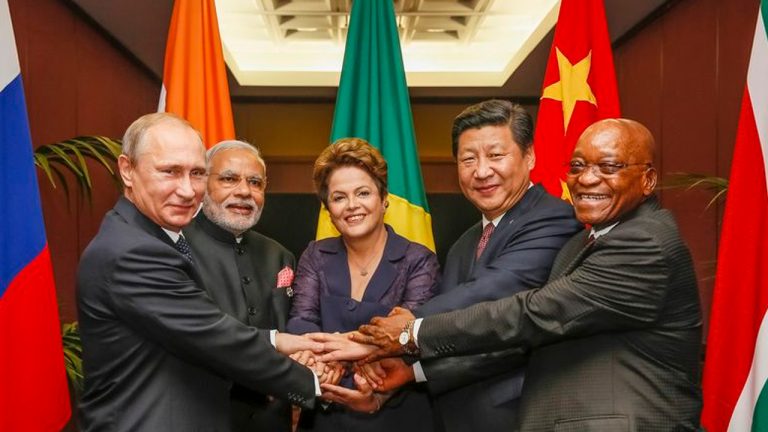
On Wednesday, Reuters reported that Western sanctions on Russia and oil trading between Moscow and India have started to erode the dollar’s decades-old dominance of international oil trade. The oil deals between India and Russia have been settled in other currencies, putting the U.S. dollar’s dominance in the oil trade under pressure.
Sources Say Non-U.S. Currencies Used in India-Russia Oil Deals Total ‘Several Hundred Million Dollars’
During the last few months, Bitcoin.com News has reported on several instances in which analysts and economists suggest that Brazil, Russia, India, China, and South Africa, collectively known as BRICS nations, are attempting to undermine the U.S. dollar. On March 8, Reuters columnists Nidhi Verma and Noah Browning reported on how India’s oil deals with Russia have put a “dent” in the U.S. dollar’s dominance in the international oil trade.
Oil traders and banking sources told the reporters that Indian customers are paying for Russian oil entirely in non-U.S.-denominated fiat currencies, including the United Arab Emirates (UAE) dirham. The sources said that over the last three months, the deals have accounted for “several hundred million dollars” in transactions between the two countries. Three sources with direct knowledge of the matter chose to disclose the information anonymously due to the “sensitivity of the issue.”
The report is not the first time accounts and sources have noted that India is reportedly getting oil from Russia at a significant discount. The estimated $60-per-barrel price cap was reported on various occasions last year. It has also been alleged that a great deal of oil is simply finding its way back to European petrol stations after India allegedly sells the crude for a premium.
A former chief economist at the U.S. State Department, Daniel Ahn, told Reuters on Wednesday that the dollar’s “strength is unmatched.” Ahn called the moves by the Russian Federation “transitory gains” that won’t have much effect. “Russia’s short-term efforts to try and sell things in return for currencies other than the dollar are not the real threat to Western sanctions,” Ahn said in a statement.
What impact do you think India and Russia’s oil deals settling in non-US currencies will have on the global oil trade and the U.S. dollar’s dominance in it? Share your thoughts about this subject in the comments section below.



















